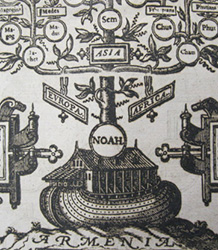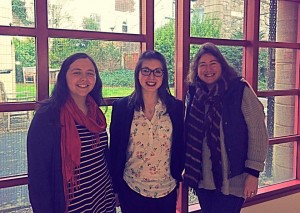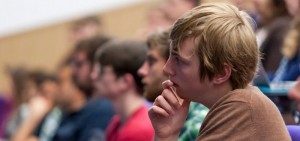Ethnicity, Race, and Religion: Identities, Ideologies, and Intersections in Biblical Texts and Interpretation, University of Exeter, 9th-11th August 2016.

Image: King James Bible from 1634 Credit: Photograph by David Horrell, courtesy of Exeter Cathedral Library.
Ethnicity, race, and religion are overlapping components of identity which intersect with one another in complex ways. Understanding how they are used and understood in biblical constructions of identity is the aim of an exciting international conference set to take place in Exeter next month – Ethnicity, Race, and Religion: Identities, Ideologies, and Intersections in Biblical Texts and Interpretation.
The conference, hosted by the Centre for Biblical Studies here are the University of Exeter, will run from 9th August until 11th August.
The conference seeks to explore how ideologies of race have shaped biblical interpretation and the influence this has had upon racial ideologies past and present. Over the course of the three-day conference, attendees will have the opportunity to hear papers discussing how issues surrounding ethnicity, race and religion are represented in the New Testament, the Hebrew Bible and Jewish tradition, Biblical Interpretation, and in the Bible in Film.
See the full conference programme for further details about the schedule and for paper abstracts from each speaker.
The plenary session speakers will be:
- Professor Musa Dube (University of Botswana)
- Dr Ma. Marilou S. Ibita (Catholic University of Leuven, Belgium, and the Institute of Formation and Religious Studies, Quezon City, the Philippines.)
- Dr Gregory Cuéllar (Austin Presbyterian Theological Seminary, USA.)
Registration for the event is currently open, click here to see our pricing options and to make a booking.
This conference is organised by Professor David Horrell and Dr Katy Hockey, and is part of an ongoing AHRC funded project, ‘Ethnicity, Race, and Religion in Early Christian and Jewish identities: A Critical Examination of Ancient Sources and Modern Scholarship.’


